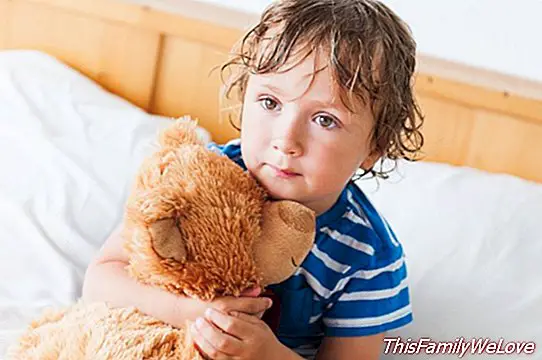He still wears a diaper. When should I worry?

Leave the pacifier, remove the rollers from the bike, leave the diapers. These are some examples of activities that children are supposed to stop doing as they grow. However, there are many other cases in which minors can not diapers at the same age as the others.
What should be done in these cases? Do you have to worry or is it something more common than you think? First of all, pediatricians warn that there are several reasons They explain why some older children wet the bed. Detecting these causes will be the first step to eliminate these nocturnal escapes.
More frequent than you think
Many parents believe that at the time the child stops wet the bed All the work is done. For this reason when they spend a few months and see that the sheets dawns wet they begin to worry and believe that there is a bigger problem. However, pediatricians explain that these leaks are more common than is commonly believed.
Pediatricians claim that 1 out of 6 children Five years old wets the bed. The figure is reduced to 1 in 10 in the case of those of seven years and 1 in 14 in the case of children under ten years. These specialists clarify that there is no common cause to explain these escapes, these are some reasons:
-It is more usual for children of these ages to suffer leaks if they have family background.
- It is more frequent to occur in children than in girls.
- Bladder loaded moments before going to bed or drinking abundantly during the night.
- Not being able to wake up to urinate.
- Bowel full of waste that presses on the bladder that causes urine
- Psychological problems: stress, family or school conflicts, jealousy for the birth of a brother, etc.
Which is the treatment
If it is detected that the child wet the bed after five years after a long time without doing so, it will be necessary to go to the pediatrician so that it decides whether or not to start a treatment correspondent. Remember that each patient must proceed in one way or another. Pediatricians point to these as some of the most common therapies:
- Therapy with enuresis alarm. The alarm will emit sound, light or vibration with the first drops of urine. It is the most effective treatment, since it teaches the child to respond to bladder stimuli. Of course, it requires a great involvement of both the child and the family.
- Treatment with desmopressin. In this case a medicine is used that decreases the production of urine during the night. It is the most recommended when children sleep outside the home. It is common that once this treatment is stopped, nocturnal leaks return.
Parents can also help in this regard through actions such as:
- Avoid feeling guilty, because it happens to many children. And under no circumstances make fun since their self-esteem is at stake.
- Make sure that children urinate before going to bed and that do not drink liquids before sleep. Caffeinated beverages should always be avoided.
- Employ a calendar of dry and wet nights will help the child to be motivated by seeing that he is able to do little. This measure should only be used if there is improvement, not where positive evolution is not experienced.
Damián Montero




